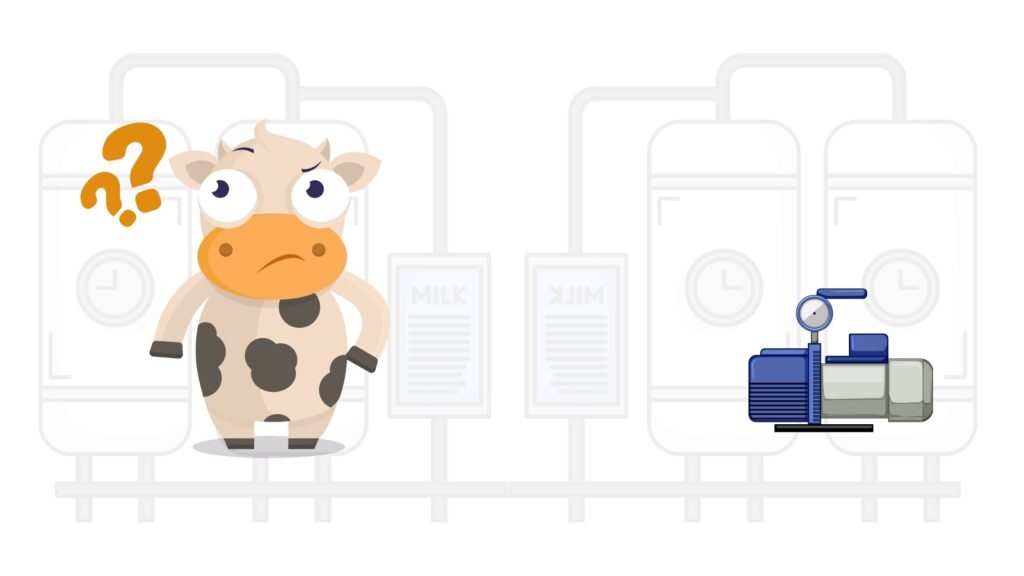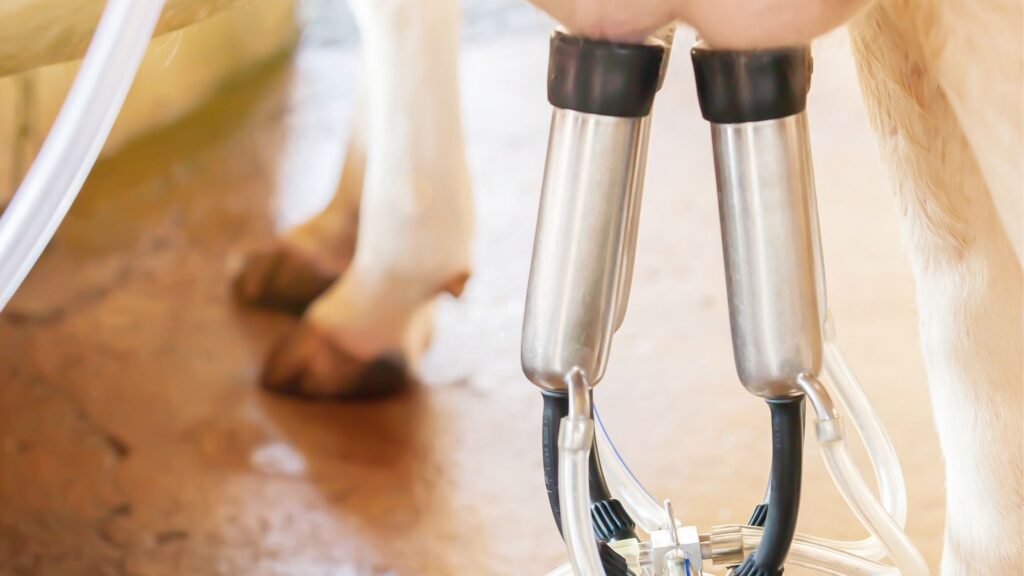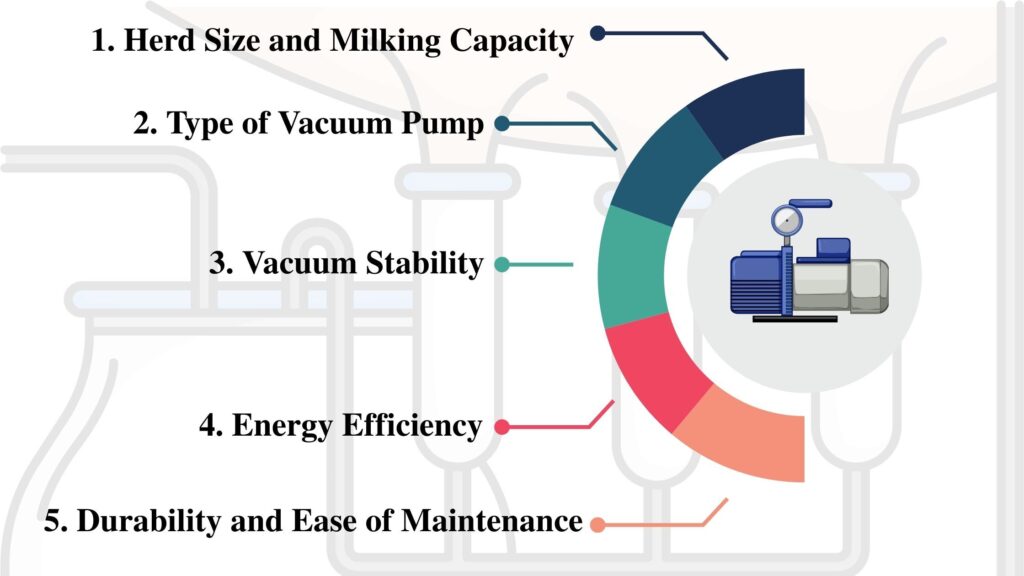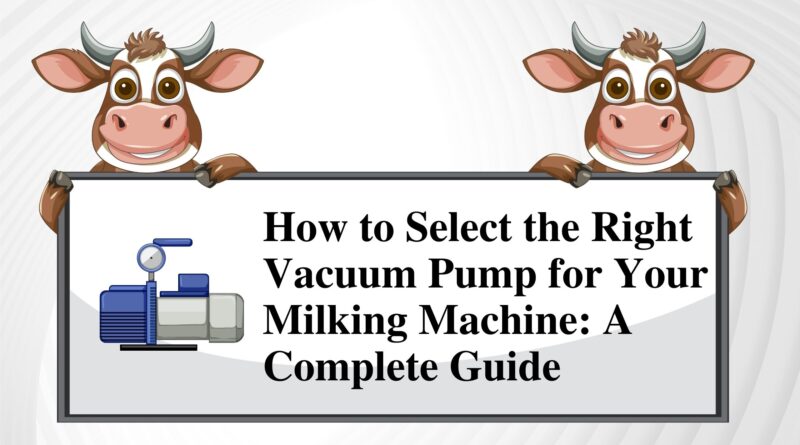How to Select the Right Vacuum Pump for Your Milking Machine: A Complete Guide
Introduction
In modern dairy farming, efficiency and animal well-being go hand in hand. At the core of any milking system is the vacuum pump, which creates the necessary suction to extract milk safely and effectively. Selecting the wrong pump can lead to vacuum instability, cow stress, mastitis, and increased energy costs.

This guide will help you understand the importance of the vacuum pump, key factors to consider, and tips to choose the best vacuum pump for your milking machine.
Why Is the Vacuum Pump So Important in Milking Machines?

The vacuum pump acts as the heart of the milking system, maintaining the required vacuum pressure to draw milk without harming the cow’s teats. A properly functioning pump ensures:
Efficient milk flow and reduced milking time.
Consistent vacuum level, preventing teat injuries.
Improved udder health, reducing the risk of mastitis.
Stable performance, even during heavy usage.
Without the right pump, your farm could face milk loss, equipment damage, and unnecessary downtime.
Buy Milking Machines Online – Get premium-quality milking machines at best price for your dairy farm.
Key Factors to Consider When Selecting a Vacuum Pump

Before making a decision, evaluate these essential factors:
1. Herd Size and Milking Capacity
Your herd size and number of milking clusters directly impact the pump size you need.
-
Small farms with a few cows can use pumps with lower airflow capacity.
-
Large farms or milking parlors require pumps with higher liters per minute (LPM) capacity to maintain stable vacuum during peak milking.
Tip: A general rule is to calculate 50 LPM per milking unit plus extra for pulsators and washing systems.
Buy Complete Milking Machine Kits – Get a full set of equipment for fast, hygienic, and efficient milking.
2. Type of Vacuum Pump
There are two main types:
-
Oil-Lubricated Vacuum Pumps
-
-
Provide quiet operation and smooth vacuum stability.
-
Require regular oil changes and proper ventilation.
-
-
Oil-Free (Dry) Vacuum Pumps
-
-
Low maintenance, no oil contamination risk.
-
May produce more noise compared to oil-lubricated pumps.
-
Choose based on:
-
Maintenance preference
-
Budget
-
Environmental concerns
3. Vacuum Stability
Fluctuating vacuum levels cause teat damage and stress in cows. A good pump:
-
Maintains a consistent vacuum under load.
-
Handles sudden demand changes without losing stability.
-
Works well with regulators and reserve tanks for smooth performance.
4. Energy Efficiency
Energy is a major operating cost in dairy farms. Modern energy-efficient vacuum pumps:
-
Use variable speed drives (VSD) to adjust speed according to demand.
-
Reduce electricity consumption by 50% or more.
-
Lower carbon footprint and operational costs.
5. Durability and Ease of Maintenance
Look for pumps from trusted brands that:
-
Offer robust construction for long-term use.
-
Have readily available spare parts and service support.
-
Include features for easy cleaning and oil change (for oil-lubricated pumps).
Additional Features to Look For
Low noise operation – improves cow comfort.
Corrosion-resistant materials – for a long life.
High airflow capacity – to handle peak loads.
Benefits of Choosing the Right Vacuum Pump
Better milk quality due to gentle milking.
Fewer health issues like mastitis.
Lower maintenance costs and downtime.
Improved energy efficiency, saving money long-term.
FAQs: Vacuum Pump for Milking Machine
Q1. How often should I maintain my vacuum pump?
Regular maintenance depends on the pump type. Oil-lubricated pumps need oil changes every few weeks, while oil-free pumps require periodic cleaning and inspection.
Q2. Can I use the same vacuum pump for different milking machines?
Yes, but ensure it has sufficient capacity (LPM) for the total number of units.
Q3. What happens if the vacuum level is too low or too high?
Low vacuum causes incomplete milking, while high vacuum can injure teats and cause mastitis.
Conclusion
The vacuum pump is the lifeline of your milking system. Choosing the right one enhances milking efficiency, protects cow health, and ensures long-lasting performance of your equipment. Always consider herd size, pump type, vacuum stability, energy efficiency, and maintenance needs before making your purchase.
for more information visit delmergroup.com

